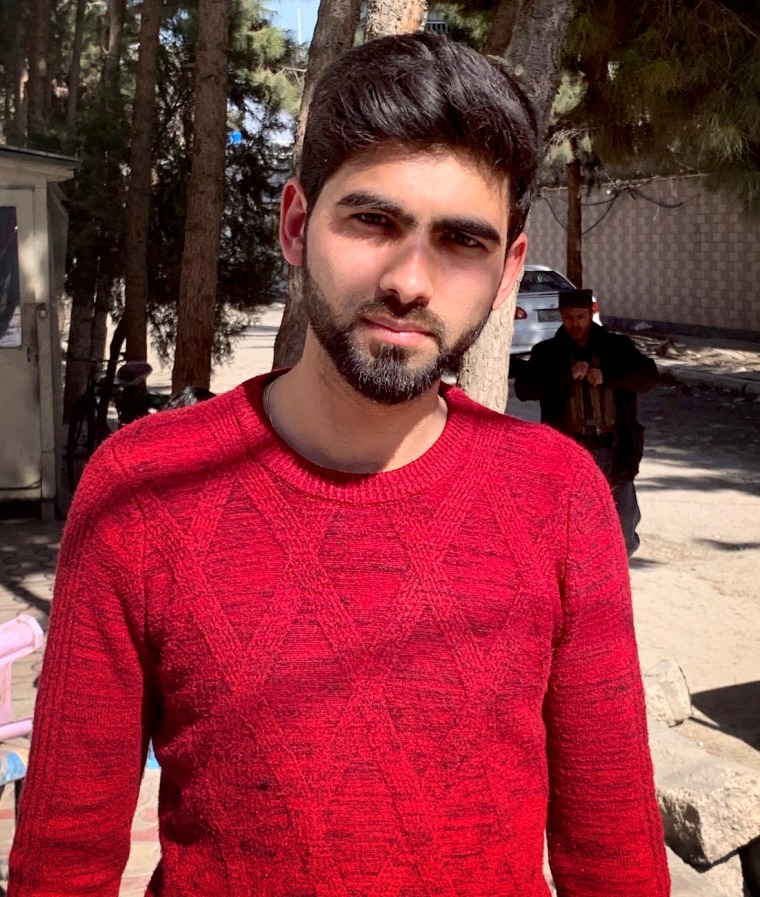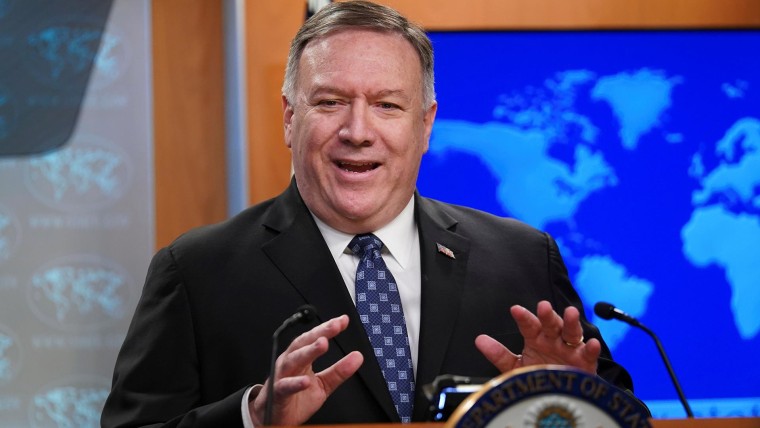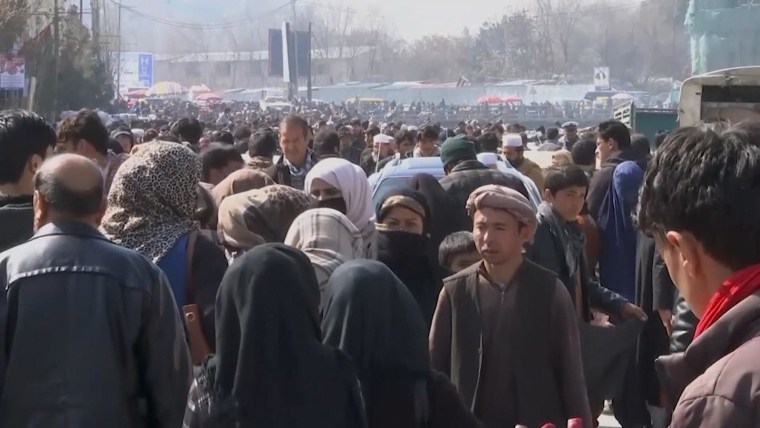KABUL, Afghanistan — Afghans have survived bombings and suicide attacks and bear the psychological scars from decades of war and violence, but as a partial truce with the Taliban entered its fifth day Wednesday, many are hopeful it might usher in long-term peace.
If successful, the partial truce — which began Friday — would lead to the signing of a long-awaited, broader U.S.-Taliban agreement that could finally see American troops withdraw from the country after 18 years of conflict — the longest American war.
"We, the people, have suffered for 40 years, and I and everyone else are happy if peace and cease-fire are declared," Hameedullah Azizi told NBC News in Kabul.
Azizi, 26, says the daily violence has taken a huge toll on Kabul's residents, something he and many others hope could stop if the partial truce involving U.S. troops and Afghan forces on one side and the Taliban on the other becomes a permanent cease-fire.

He said he is still dealing with the psychological trauma of a bomb blast in May.
The explosion rocked a computer store where he worked, smashing the window glass. He escaped, but the blast haunts him to this day.
"When someone is bitten by a snake, that person is afraid of every rope around," he said. "I don’t feel safe at all. That day after the blast, I couldn’t sleep for days, and I still feel like cars around me are going to blow up."
If the partial truce succeeds, a Taliban representative and the U.S. special envoy Zalmay Khalilzad are expected to sign a broader agreement in Doha, the capital of Qatar, on Feb. 29.
The agreement would then lead to so-called inter-Afghan negotiations aimed to achieve a "comprehensive and permanent cease-fire that ends the Afghan War," a senior U.S. official told reporters Feb. 14.
Masoud Sattar, 38, a grocer from Kabul, said his store has been shut for the past two years because people are afraid of the frequent violence, choosing to stay inside their homes after sunset. Sattar too witnessed a blast near his store.
"We are afraid all the time of suicide blasts. It can happen anytime," he said.
"The reduction in violence is a good step towards peace. We have been waiting for peace for 40 years and now we are hopeful. It is the right time for all parties to [act in the] national interest, but this requires a commitment from all sides."

On Sunday, President Donald Trump sounded a note of optimism that a U.S. withdrawal could be achieved, telling reporters it was "time to come home."
But the route to peace is still not certain. A day after the partial truce was announced, Taliban fighters and Afghan security forces clashed in parts of Afghanistan, according to Reuters. But the incidents did not spark immediate alarm on either side, the report said.
A spokesman for Afghanistan's interior ministry told the TOLOnews channel Sunday that five members of the Afghan security forces had been killed in the clashes over the previous two days. There was no immediate reaction to the deaths from either the United States or the Taliban.
The U.S. said it was looking to work with the Taliban and the Afghan government to monitor the reduction in violence. Gen. Scott Miller, the top U.S. commander for Afghanistan, will have the final say on whether the peace has held and whether the breakouts in violence are significant enough to stop the peace process.
Said Rahman, 64, a Kabul resident who works as a letter writer helping illiterate Afghans navigate bureaucratic procedures, said it was hard to predict whether long-lasting peace would come to Afghanistan.
"Reduction of violence is definitely a good step towards peace, but who knows what’s going to happen in the future," Rahman, who is also a survivor of a bomb blast, said. "There are many groups fighting in Afghanistan."
Talks between the Trump administration and the Taliban became public in 2018 and the road even to the seven-day reduction in violence has been a rocky one. In September, Trump unexpectedly called off the negotiations, citing the death of a U.S. service member who was killed in a suicide attack in Kabul just days earlier.
The U.S. has 12,000 to 13,000 troops in Afghanistan, but in December three current and former U.S. officials said that the Trump administration was poised to withdraw approximately 4,000 of them.
"The Afghan nation has been used in the name of religion which resulted in the 40 years of war," Rahman added. "This is crystal clear to all. As a common citizen of this country, I have the U.S. and Afghan government on one side and the Taliban on the other hand. It’s we who are in trouble."
Ahmed Mengli reported from Kabul, Yuliya Talmazan from London.

